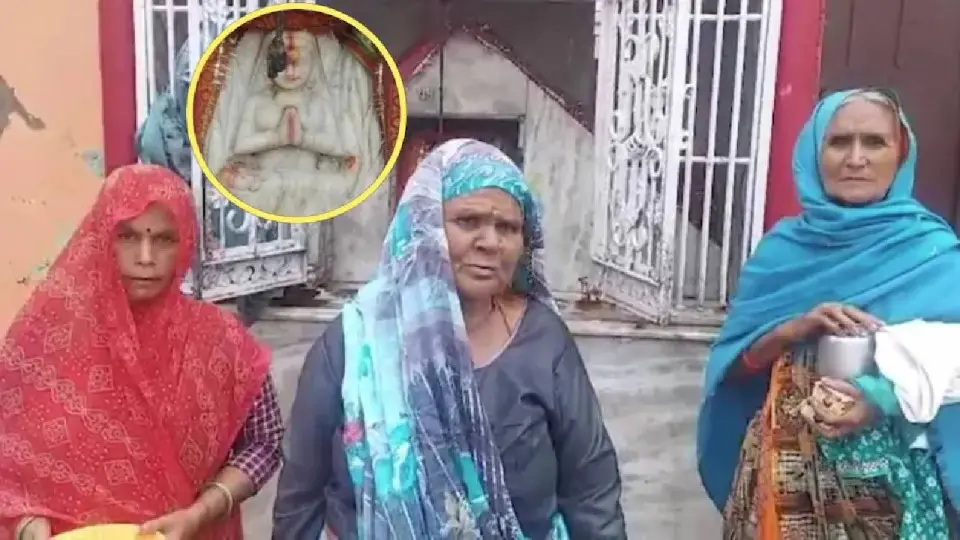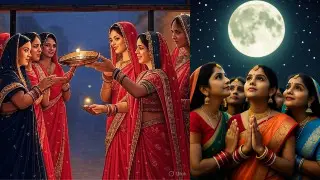
Karwa Chauth Mystery (Credit:Top Indian News)
National News: Every year, Karwa Chauth brings joy, colors, and rituals across India. Women dress up with sixteen adornments, observe strict fasting, and pray for their husbands’ longevity. However, in Ramnangla village of Mathura, the festival carries no charm. Here, married women neither apply makeup nor observe fasting. The tradition, which is celebrated with pomp elsewhere, is absent in this village. Locals believe this unusual practice is tied to a painful event that happened many centuries ago. For them, it is not celebration but remembrance of grief.
Centuries ago, a newlywed Brahmin youth from Ramnangla brought his bride back from across the Yamuna River. Riding on a cart pulled by a buffalo, he was attacked by men from Surir who claimed the animal. A violent clash broke out, and the young man was killed on the spot. His wife, heartbroken and helpless, watched her husband die in front of her eyes. In deep pain, she chose to commit sati with his body. But before that, she cursed the land and its people, leaving behind words that would alter traditions forever.
The young bride declared in anger that just as she was dying with her husband, no woman in that land would ever enjoy her marital happiness. She warned that no married woman would adorn herself with ornaments or perform rituals for her husband’s long life. Villagers later believed this curse began to take effect. Unnatural deaths followed, young men perished, and women turned widows. The incident spread fear across families, making people believe they were facing divine punishment. The curse soon became an unspoken law in the community.
As tragedies continued, the locals decided to seek forgiveness from the spirit of the woman. A temple dedicated to the Sati Mata was built in Surir. Worshippers believed her blessings could reduce the wrath and prevent further untimely deaths. Rituals at the shrine gave people a sense of safety, though the fear never completely vanished. Even today, people bow their heads at the temple, recalling the curse. The place has become a reminder of both devotion and the haunting power of a widow’s words.
Even after centuries, the curse continues to dictate life in Ramnangla. Women here do not celebrate Karwa Chauth. They neither observe the traditional fast nor receive gifts from their parents. While the rest of India spends the evening waiting for the moonrise, the women here avoid festivities altogether. The sight of bridal adornment is rare, and no bangles or makeup are worn on this day. For generations, families have accepted this as a way of life. The festival remains incomplete in this village.
An elderly woman, Sunhari Devi, explained that while the unnatural deaths have stopped after building the temple, the practice of fasting never returned. According to her, every married woman in the area still carries the fear of the curse. No one dares to challenge it. The cultural memory of the tragedy is stronger than any desire for celebration. Parents teach their daughters from childhood that this custom must not be broken. As a result, the Karwa Chauth night in Ramnangla is always silent and simple.
In modern India, festivals usually evolve with time, but in Ramnangla the shadow of the curse still controls tradition. Despite education, changing times, and outside influence, no woman has dared to restart Karwa Chauth rituals here. The belief that misfortune will return keeps the practice alive. The younger generation also respects the custom, fearing the anger of the Sati Mata. Thus, what began as a woman’s curse centuries ago has now become a community’s permanent tradition. Karwa Chauth in Ramnangla remains a story of sorrow instead of joy.













Copyright © 2025 Top Indian News
